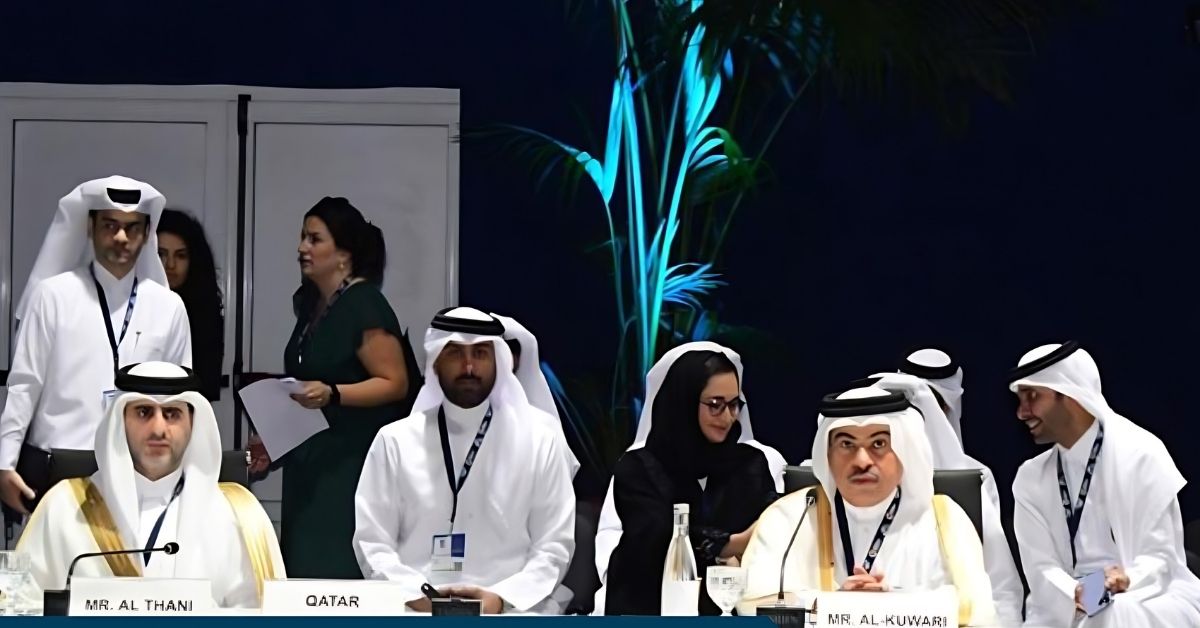Marrakesh — Qatar is committed to ensuring financial sustainability through growth-oriented fiscal control, aiming to boost savings for future generations while preparing for a smooth energy transition and avoiding pro-cyclical fiscal policies, said Qatar’s Minister of Finance, Ali bin Ahmed Al Kuwari.
He also emphasized the vital role of the International Monetary Fund (IMF) in addressing global challenges.
He made these statements during his participation in a meeting of finance ministers, central bank governors, and heads of financial institutions in the Middle East, North Africa, Afghanistan, and Pakistan. Qatar Central Bank Governor Sheikh Bandar bin Mohammed bin Saoud Al-Thani also attended the meeting.
Al Kuwari highlighted positive financial developments, such as robust fiscal discipline supported by strong oil prices, debt reduction efforts by the Ministry of Finance, and improved macroeconomic indicators due to structural reforms.
“These factors have led to positive sovereign credit ratings for Qatar by international credit rating agencies,” he said.
Despite the region’s economic resilience, Al Kuwari stressed the need for financing, especially in achieving the goals of the Paris Agreement.
He emphasized the importance of the international community and financial institutions in providing timely support, with the IMF’s Resilience and Sustainability Trust playing a crucial role.
Creating more inclusive economies is essential for resilience and shock resilience, Al Kuwari noted.
He highlighted the IMF’s potential to assist regional countries by drawing on global experiences and best practices to guide policy implementation tailored to each nation’s circumstances.
The meeting, chaired by IMF Managing Director Kristalina Georgieva, gathered finance ministers, central bank governors, and financial institution leaders from the Middle East, North Africa, Afghanistan, and Pakistan.
Qatar’s Ministry of Finance and the Central Bank of Qatar represented the Gulf country in discussions covering strategic issues, regional economic growth, future prospects, and financial policy requirements to combat inflation.

